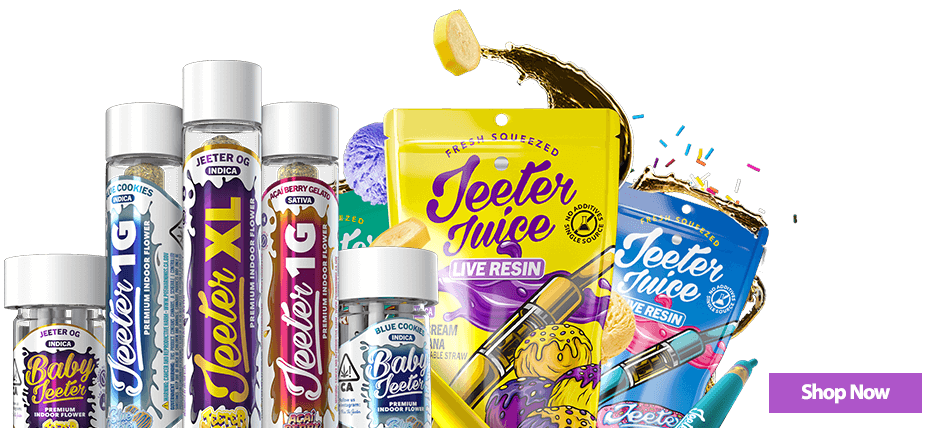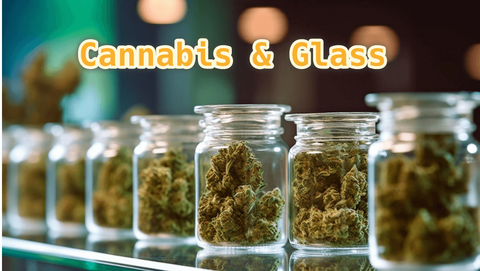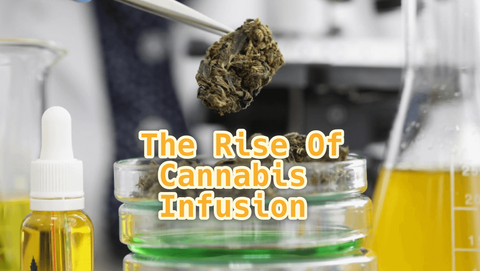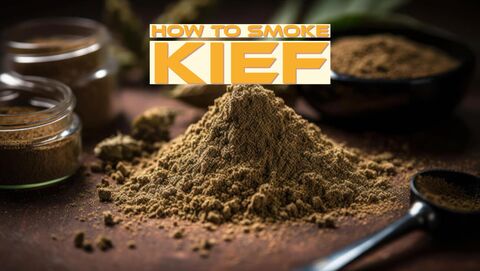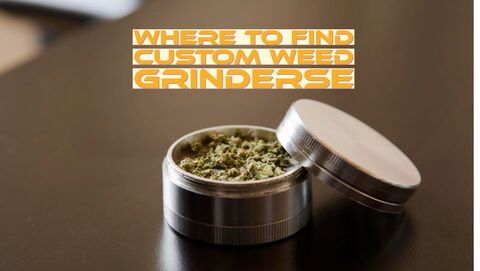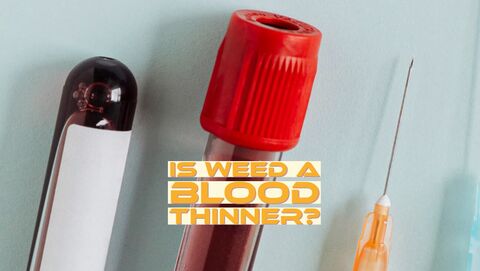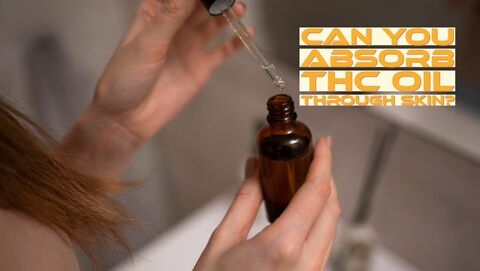Latest Blog Posts
Top rated
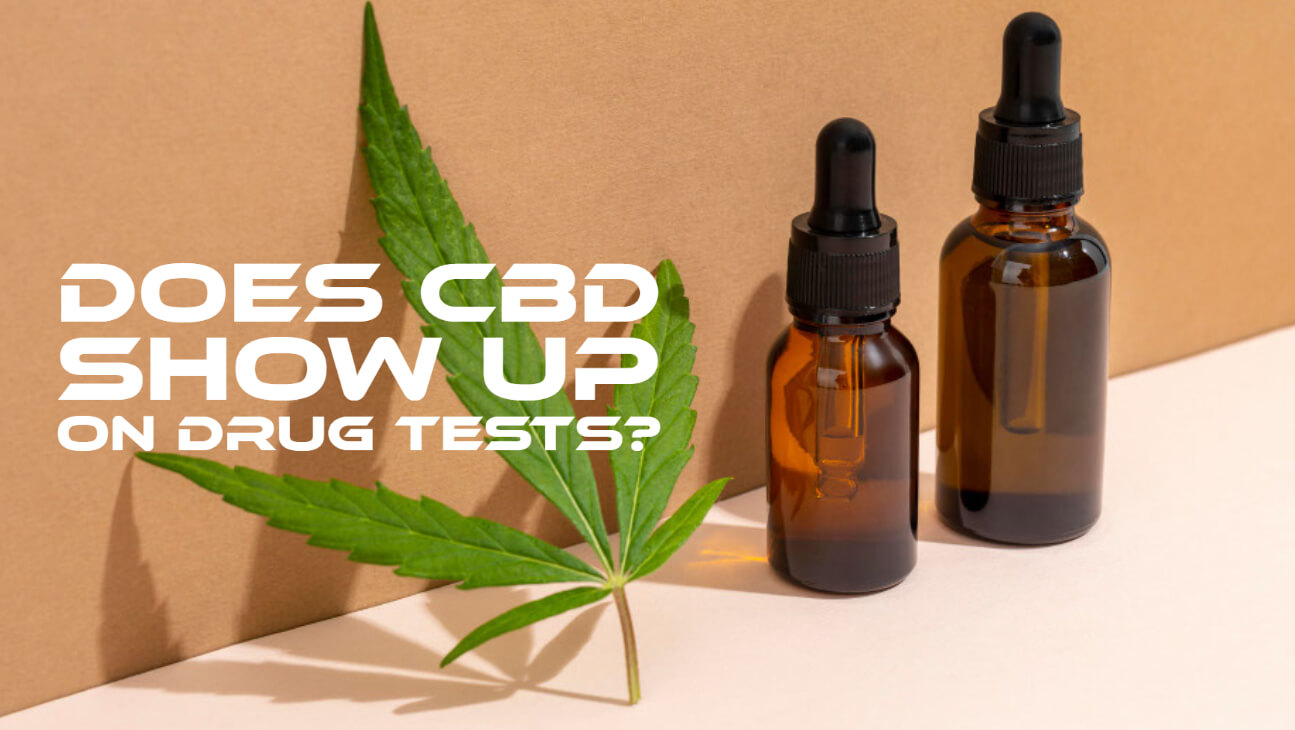
Does CBD Show Up On Drug Tests?
CBD has swiftly become a topic of discussion in medical research as it has emerged as a feasible choice for treating various health concerns. However, is there a possibility that it will show as a positive result on a drug test?
As a result of the claims made regarding its purported abilities to treat both physical and mental illnesses, cannabidiol (CBD) has emerged as a drug with an unusually high level of fascination. When you perform a search on Google for "CBD advantages," the first thing that comes up is a list of results with promises such as "relieves pain," "reduces anxiety and melancholy," "may reduce acne," and "may boost heart health." This promise, however, is associated with several risks, and one of those risks is the possibility of producing a positive result on a drug test. This is only one of the risks. Can CBD cause complications due to a positive result?
In this article, you will learn the various reasons for a positive result, the presence of THC in CBD products, and the procedures that can be done to prevent a positive result on a drug test when using CBD.
What Exactly Is CBD?
Cannabidiol, often known as CBD, is a derivative of the Cannabis sativa plant that is not as well-known as its more well-known relative, tetrahydrocannabinol (THC), the component of the plant that is responsible for the psychoactive effects of the drug. It is believed that the herb, which can be traced back to Central Asia, was initially utilized for medical - or ritualistic - purposes about the year 750 BC; however, other estimates suggest a different period.
Cannabidiol and tetrahydrocannabinol are just two of more than one hundred cannabinoids found in the cannabis plant. THC is the component responsible for the high, while CBD may or may not have any effect. It is unknown whether CBD has any effect on lowering anxiety, whereas there is some evidence that THC may have that effect. THC can lead to addiction as well as cravings; CBD is currently being researched for its potential to aid those who are recovering from addiction.
Cannabis is defined as having less than 0.3% of the psychoactive compound THC. Even though cannabis was made legal under federal law with the passage of the Farm Bill in 2018, the Food and Drug Administration was given continued authority over cannabis-infused products.
What Are The Assertions Being Made?
CBD is being marketed as a treatment for a variety of mental health conditions, including anxiety, sadness, and post-traumatic stress disorder. Additionally, it is said to make sleeping easier. CBD is especially popular since it is said to be "non-psychoactive," which means that consumers can enjoy the plant's medicinal benefits without experiencing the intoxicating effects of THC (or eating pizza at night).

In the same way that hemp seeds are becoming more widely available across the United States, also is its marketing. It would appear that there is no product or setting that is off-limits for CBD, from oils and nasal sprays to lollipops and suppositories.
When asked about the diverse applications of CBD, Dr. Brad Ingram, an associate professor of pediatrics at the University of Mississippi Medical Center, described the compound as "a monster that's taken over space." CBD will be given to children and adolescents with epilepsy that is resistant to treatment as part of a clinical trial that he is heading.
Does CBD Work?
After the results of three randomized, double-blind, placebo-controlled clinical trials involving 516 patients, the Food and Drug Administration (FDA) approved Epidiolex, a purified CBD extract, for the treatment of rare seizure disorders in patients aged two years and older. The trials demonstrated that the drug, when combined with other medications, reduced the number of seizures experienced by patients.
These kinds of clinical tests are considered to be the gold standard in medicine since the participants are chosen at random, so neither the test subjects nor the researchers know which group will be given the drug and which will be given a placebo.
Epidiolex is still the only CBD treatment that has been approved by the FDA, despite the fact that there is reason to believe that the extract of the plant could be used to treat other conditions.
List Of The Health Advantages Of CBD Oil
It is true that additional research is required to prove some of the more extreme claims about the benefits of CBD, but there are a lot of studies that demonstrate quite convincingly the benefits of CBD for conditions such as anxiety, pain, and inflammation. CBD is a compound that is extracted from the cannabis plant.
Take a more in-depth look at some of the genuine advantages of utilizing CBD products.
CBD Oil For Aches And Pains
Ever since people experienced the agony of a stubbed toe for the first time, they have been looking for a treatment that will alleviate the pain. This search has lasted for thousands of years.
Pain is an inevitable aspect of being human, but, if you are able to lessen the severity of persistent or constant pain, your life may become significantly less difficult.
Researchers now have a far better understanding of the effects of CBD oil as a result of recent developments in scientific research on the cannabis plant. CBD is a viable candidate for treatment due to the myriad of distinct qualities that it possesses.
There is some evidence that cannabidiol, or CBD, can help reduce inflammatory and neuropathic pain due to its neuroprotective benefits. This is presumably why there are so many reports of people using CBD to treat their back and joint pain.
The endocannabinoid system, which is found in human bodies, is primarily responsible for the pain-relieving effects of cannabinoids. It collaborates with the central nervous system to carry out its functions (CNS). In addition to this, it controls a wide variety of biological activities, including pain, sleep, mood, appetite, and immune system responses.
The anti-inflammatory and pain-relieving characteristics of CBD have been confirmed by a large number of other studies; nevertheless, additional research is required to understand the complete profile of this drug. Despite this, a large number of people claim that consuming CBD for pain effectively relieves their symptoms.
The use of CBD oil or CBD gummies for the treatment of pain appears to be the most common application of CBD across all CBD products. Having said that, each person has their own set of tastes.
Ache Caused By Arthritis
CBD is unlike anything else that can be used to alleviate pain and is considered to fall under the category of alternative and complementary medicine. In addition, there are studies that demonstrate the efficacy of CBD in reducing the discomfort caused by rheumatoid arthritis.
Rheumatoid arthritis is an autoimmune illness that can affect many different sections of the body, causing severe inflammation and swelling in those areas. There is reason to be optimistic about CBD treatment's potential to alleviate pain thanks to the anti-inflammatory qualities it possesses. This discomfort is frequently connected to the inflammation that arthritis manifests.
.jpg?1668537700790)
It is recommended to use a topical form of CBD oil, such as a salve or ointment, for the parts of the body that are specifically affected by arthritis. You may also choose to take CBD oil orally at the same time if that is more convenient for you. After applying a centimeter's worth of a topical CBD oil ointment to the affected joints, the majority of patients subsequently consume CBD in the form of candies, pills, or oil.
Reduce Stress And Improve One's Mood
Being exposed to the hectic pace of today's society has been linked to a variety of mental illnesses and anxiety problems. There is no denying the influence that a stressful job or situation can have in today's environment. The effects of stress can be severe and detrimental to day-to-day life, as well as to one's quality of life and overall health and well-being.
Treatment for anxiety typically involves taking one of a number of different drugs, some of which might result in unpleasant side effects such as difficulty sleeping, impotence, or migraines. Other prescription medications also include the risk of addiction. Patients run the risk of becoming dependent on their medication.
On the other hand, humans do not want to get dependent on anything that is hazardous to their health.
When it comes to situations like these, CBD oil can be a savior. It has been demonstrated to be useful in the treatment of anxiety disorders by a number of different studies. Cannabidiol is a substance that is found naturally in the body, which is one of the reasons why so many people prefer this natural approach. CBD was able to dramatically lessen the subjects' anxiety levels when they were required to participate in a simulated test that involved public speaking.
CBD's Efficacy In The Treatment Of Depression
It's possible that the relaxing effects of CBD make it the best impact of the herb and the primary reason for using it.
Anxiety in men has been the subject of 57 pieces of research that has been published by the Brazilian Institute of Psychiatric Research and were conducted using an online simulation. Before the competition, some of them were given a placebo, while others were given varying amounts of CBD ranging from 300 milligrams to 400 grams to 400 milligrams.
It was observed that a dose of 300 milligrams was the most helpful in reducing sensations of anxiety, which in turn lowered feelings of depression. It is interesting to note that the researchers did not find any significant differences in whether they used a lower amount of CBD (150 mg) or a much larger dose (600 mg) in their experiment.
When given in larger quantities, increased receptor activity might result in overstimulation and other undesirable outcomes. Increasing the amount of CBD you consume may not have a beneficial effect on the symptoms that are causing you trouble.
One thing is absolutely certain, and that is the fact that there are a great number of studies and research papers that support the claims that CBD can reduce anxiety. Due to the fact that CBD is so complicated, researchers are looking at other cannabinoids in order to gain a better understanding of its potential application in the treatment of various mental diseases.
Characteristics Of Cancer And Its Effects
When used to treat cancer, chemotherapy has an effect on the patient's body. CBD can help alleviate certain severe side effects of disease treatment and cancer-related symptoms, despite the fact that it cannot cure cancer.
Chemotherapy leaves the body so weak that the person receiving it loses their appetite. The only thing you want to do is throw up. The discomfort is intolerable. You have completely lost the will to continue living.
The combination of THC and CBD has been shown to be beneficial to cancer patients undergoing chemotherapy in a number of case studies involving individual patients.
There have been reports of significant reductions in levels of pain. Patients have also reported an increase in appetite, and they have begun to consume more calories and engage in greater physical activity. Because of this, their bodies got more resilient, and they were better equipped to deal with the effects of cancer.
It is also important to note that the THC-CBD extract played a key role in alleviating the symptoms that are commonly linked with cancer treatment. Cancer-related pain was simply easier to bear.
Potentially Useful For Treating Neurological Conditions
According to studies, cannabinoids are able to bind to receptors located all over the body. And that includes the brain. CBD, which is the primary component of the Cannabis sativa plant, is regarded as an intriguing molecule due to the numerous clinical studies that have proved the positive effects that it has on a person's health.
It makes sense that CBD, which can interact with several different parts of the human body, would also protect the brain from neurological problems by stimulating particular degraded regions of the nervous system. This is supported by the fact that CBD can interact with many different parts of the body. It is believed to be able to treat neurodegenerative diseases.
Hence, CBD may be effective in repairing brain function that has been disrupted, for instance, as a result of an automobile accident.
Cannabinoids, after they have entered our system, will send messages to the brain and spinal cord in order to stimulate the functions of those organs. People afflicted with neurological conditions caused by an absence of endocannabinoids, such as Alzheimer's disease, Parkinson's disease, or multiple sclerosis, may benefit from this treatment option.
How Do CBD Screening Tests Work?
A drug test can identify the presence of THC or its metabolites for up to 90 days after the last time an individual smoked marijuana; however, this time frame varies depending on the type of sample that is collected. However, the duration of this effect can be prolonged by increasing both the amount and the frequency with which it is ingested. In addition to this, the length of the detection period can also be affected by the kind of test that is carried out.
The following is how these tests work: when THC enters the body, it is broken down by the liver, which then stores it in fat cells, where it can persist for a considerable amount of time. However, as time passes, the THC that has been processed will eventually be released into the body. This is the reason why the amount of detectable THC might change even after a few days have passed since the last time a smoker smoked.
As you may already know, there are primarily four different kinds of examinations. Urine and saliva tests are the most prevalent since they are also the tests that are best suited for testing in the workplace.
How Does Workplace Drug Testing Work?
Screening tests and confirmatory testing are the two primary types of drug tests that are utilized by businesses and governing bodies. Both methods, despite their differences, search for drug metabolites.
Antibodies are utilized in drug screening procedures in order to identify metabolites produced by the substances consumed in a sample of saliva, urine, or hair.
To begin, the person doing the test will place the antibodies in the receptacle that will be used for the actual testing. After the sample has been included, the antibodies will start to attach to the metabolites of the chemical that is being evaluated. The tester will take the sample out of the receptacle and then add another batch of antibodies to the container. These antibodies have a color-changing enzyme inside of them, and when it reacts with the sample, it will tell which metabolites are present (if any).
The confirmatory tests are significantly more difficult and pricey than the others. They employ gas chromatography and mass spectrometry to separate and, respectively, break down the molecules that are present in a sample, which makes it much simpler to identify any drug metabolites that might be there.
If you are reading this, there is a good possibility that you are already familiar with the various types of drug tests that are listed below, as these are the tests that are used by corporations the most frequently.
Saliva And Urine Drug Testing
The most prevalent types of drug tests used in the workplace are immunoassays performed on saliva and urine.
Urine tests typically seek for chemicals that have been consumed during the last 7 to 10 days. However, certain metabolites, such as those of THC and other cannabinoids, can be found in urine for up to thirty days in moderate users and up to ninety days in heavy users.
The amount of time it takes for saliva tests to identify drugs consumed ranges from 12 to 24 hours for alcohol, cannabinoids, and amphetamines to 7 to 10 days for cocaine and some prescription medicines.
Blood And Hair Drug Testing
The primary reason why blood and hair drug tests are not used as frequently in the workplace is due to the fact that they are significantly more expensive. In addition, blood tests are more invasive than testing involving urine, hair, or saliva.
Blood and hair tests, on the other hand, are far more accurate and can identify chemicals even if they were consumed over a longer period of time. Specifically, hair tests can detect metabolites up to 90 days earlier than other methods.
What Screening Tests Are Available For CBD?
There is currently no way to test for CBD. The only thing that any of these tests look for is metabolites of THC (as far as the marijuana plant is concerned). If you are reading this, you probably already know that THC is the main intoxicating compound present in cannabis. Because of this, the vast majority of nations' drug laws solely address THC and thus do not consider CBD to be a substance that is either regulated or illegal.
What Exactly Is Involved In A 5-Panel Drug Test?
The most common type of drug test to be administered in the workplace is a five-panel screen. Paper strips containing five distinct colored panels are used in these tests to look for metabolites of the most popular recreational drugs, which are as follows:
- Cannabis
- Cocaine
- Amphetamines
- Opioids
- PCP (Phencyclidine)
Expanded versions of this test are used occasionally by companies and sports authorities. These tests can identify metabolites of ethanol, hallucinogens, barbiturates, benzodiazepines, anabolic steroids, and inhalants, in addition to other substances.
Can Full-Spectrum CBD Oil Test Positive In A Drug Test?
Full-spectrum CBD products contain all of the active compounds that are present in marijuana and hemp, including trace amounts of THC, which means that they could, at least in theory, cause a positive result on a drug test. CBD products also contain all of the other active compounds that are present in marijuana and hemp.
Keep in mind that the amount of THC that can be legally present in CBD products that are produced from hemp varies from state to state but is typically between 0.1% and 0.3%. As a consequence of this, no high-quality full-spectrum CBD oil that meets these guidelines should contain sufficient amounts of THC to register as positive in these tests.
An Increasingly Popular Therapeutic Option For A Variety Of Ailments
Oil containing CBD, also known as cannabidiol, is becoming an increasingly popular therapeutic option for a variety of ailments, including anxiety, pain, and sleep difficulties. There are concerns that the use of CBD oil may result in a positive test for another cannabinoid called tetrahydrocannabinol. CBD by itself does not show up in a drug test; however, with the advent of CBD products, there are concerns that the use of CBD oil may result in a positive test for another cannabinoid called tetrahydrocannabinol (THC).
THC is the primary psychoactive component of the cannabis plant and the primary molecule that most standardized drug tests are designed to detect in an individual's system.
Despite the widespread belief that cannabis oil does not contain any detectable levels of THC, more and more reports are coming to light about people who have tested positive for THC after consuming cannabis oil. These people include corporate employees, athletes, public officials, and other individuals.
The question is, then, whether or not CBD can be identified in a urine drug test. What should people who use CBD know before agreeing to take a drug test at work, and what steps can they take to decrease the likelihood that they will have a positive result for THC?
Does CBD Show Up On Drug Tests?
THC, and more precisely, its metabolite THC COOH, is the substance that is most frequently looked for in drug testing. Although there is no reason to test a person for CBD because this substance does not have any intoxicating properties or effects on psychomotor function, drug tests could, in theory, be designed to detect the presence of CBD and its metabolite. Even so, there is no point in testing a person for CBD because this substance does not affect psychomotor function.
.jpg?1668537792965)
In a nutshell, cannabidiol (CBD) will not show up on a drug test. If you use cannabis oil that has trace amounts of THC in it, there is a possibility that you will have a positive test result for THC even though you are not actually high.
Does CBD Oil Include THC?
Depending on the strain of hemp used to make the CBD oil, there may be trace amounts of THC present in some of the refined products.
Cannabis is the general term for hemp and marijuana. Even if the oil was derived from a CBD-rich strain of marijuana, it is possible that it would still include THC because marijuana plants are characterized by the presence of THC.
Cannabis is a type of plant that has a high concentration of CBD but only a trace amount of THC (typically less than 0.3%) in its makeup. Even while this amount is not enough to get someone high (which is one of the reasons why cannabis products are lawful at the federal level), it may nevertheless result in a positive THC test.
As it turns out, the source of CBD is not the only factor to consider. The processes of harvesting and refining CBD oil can also have an effect on the chemical composition of the product.
The following are the general classifications that CBD extracts fall under the following:
Full Spectrum CBD
Extracts of cannabidiol (CBD) with a full spectrum include all of the chemicals that are naturally found in cannabis.
In a nutshell, a full-spectrum extract includes not only CBD but also terpenes, flavonoids, and a variety of other cannabinoids, including THC.
Less than 0.3% of CBD oil derived from hemp can legally include any amount of the psychoactive cannabinoid THC. Because not all manufacturers declare the source of their full-spectrum extracts, it can be challenging to determine how much THC may be included in a given product. Some manufacturers do disclose the source of their extracts, though.
For this reason, it is important to carry out third-party laboratory testing. The product that was examined in the laboratory ought to come with a certificate of analysis that details the overall quantity of cannabinoids in addition to the other chemicals that were found in the extract.
In the event of a drug test, it is extremely unlikely that full-spectrum CBD oil will produce a positive result for THC.
CBD With A Broad Spectrum
Broad-spectrum CBD products, in the same way, that full-spectrum CBD products do, contain other chemicals derived from the cannabis plant. These additional compounds include additional cannabinoids as well as terpenes.
On the other hand, Broad Spectrum CBD does not include any THC because it has been purified. Therefore, there is a lower probability that broad-spectrum products will test positive for THC.
CBD Isolate
Isolated CBD, as its name suggests, consists entirely of CBD in its purest form. There are no other chemicals derived from the plant source that is present in this composition. In the laboratory, CBD isolate should not include any trace amounts of THC, and as a result, it should not result in a positive drug test.
You can ingest the isolate straight, or you can add it to food and drink. Because it does not have a smell or flavor, it is more adaptable than a full-spectrum isolate. Additionally, CBD isolation can be purchased in the form of oils, tinctures, edibles, and vaporizers.
Users Of CBD Oil Should Be Aware Of The Following Potential Causes Of A Positive THC Test
When someone uses CBD oil that comes from a reliable source, the results of a drug test almost never come back positive. On the other hand, there are some circumstances in which using CBD products will result in a positive drug test. This can occur in the following ways:
- A small amount of THC can be found in certain hemp oils
This is by far the most typical cause of a negative result on a drug test.
If you take a drug test and your CBD oil
- Cross-contamination
The extremely trace levels of THC that are present in the beginning material have the potential to leach into the CBD oil at concentrations that are sufficient to produce a positive result on a drug test. This is more likely with methods of extraction that are less expensive.
- Products with incorrect labels
The maximum amount of THC that should be present in CBD oil obtained from hemp is 0.3 percent. Retailers, on the other hand, frequently use misleading labels on their products, claiming that they do not contain THC despite the fact that the items actually contain THC levels that are above the legal limit.
According to the findings of one study, approximately seventy percent of CBD products that are offered over the internet have incorrect labels, which poses a significant health danger to customers. Because CBD products are free from regulation by the Food and Drug Administration (FDA), this widespread phenomenon has arisen.
%20(1).jpg?1668537888916)
If the test comes up positive for THC, it is possible that you purchased a product that is not actually derived from hemp or that contains more than 0.3% THC. Although the majority of producers assert that their products do not contain THC or that the amount of THC present is lower than 0.3%, it is important to note that this is not always the case.
- Passive smoking might result in an individual being exposed to THC
Even while the occasional inhalation of secondhand smoke from marijuana shouldn't be enough to trigger a positive test for THC, it is still feasible to do so. If you know that you will be subjected to a drug test at your place of employment, you should steer clear of any areas where there is heavy smoking use.
How To Use CBD So That You Won't Show Up Positive On A Drug
Test
If you take CBD oil, there are a few things you may do to protect yourself in the event that you are subjected to a drug test.
First, you need to make sure that the CBD product you purchase comes from hemp and that the company employs the appropriate refining procedures in order to remove the THC from the extract.
Checking to verify whether or not the manufacturer provides third-party test reports to back up the claims made on the label is the best way to determine whether or not the manufacturer can be trusted. This way, you will have an accurate understanding of the amounts of CBD, THC, and any other cannabinoids that are contained in the product that you select.
Ask the customer support department about the extraction procedures they use and whether or not there is a chance of cross-contamination, if at all possible. The majority of reputable companies that create CBD oils do so through a technique that does not include the use of solvents and results in goods that are both clean and effective.
Consuming a CBD isolate that has been evaluated in a clinical setting is the most reliable method for ensuring that your body is devoid of THC on the day of a drug test. This specific variety of CBD does not include any of the other cannabinoid components, including THC, that are found in cannabis.
Here Are Some Suggestions On How To Use CBD Oil While Taking A Drug Test
You can rely on a study that was carried out in Berkeley, California, in the year 2001 in order to calculate the realistic likelihood of failing a drug test after taking CBD that was derived from cannabis. In the study, the researchers administered individuals up to 0.60 mg of THC per day for a period of 40 days, and the results showed that only one participant out of 15 failed the drug test.
According to this study, it is highly improbable that using our full-spectrum CBD oil will result in a positive drug test, despite the fact that each dose of the full-spectrum organic CBD oil includes a little higher concentration of THC than the previous one. This is due to the fact that the detection limits for THC metabolites are often set too high, making it impossible to detect even minute amounts of THC in urine samples.
Nevertheless, if you use CBD, there are a number of things you can do to boost the likelihood that you will pass a urine test, including the following:
- Approximately two to three weeks before the urine test, you should cease using any CBD products.
- Find out whether the test will be conducted on your hair or liquid.
- Use a home test to determine the amount of THC in your system.
- On the day of the test, be sure to drink lots of water.
- You could also give cranberry juice a shot.
In the meantime, discuss the possibility of revising the testing policy at your employer with the department of human resources or a representative from your labor union, and get in touch with both your state and federal officials.
It is also useful to be aware that anywhere from 5 to 10 percent of positive drug tests are due to false positives. This is something that has been thoroughly researched and is a valid reason to ask for a second test if the first one came back positive.
The Bottom Line
THC, and more specifically its metabolite THC COOH, is the compound that is most usually searched for in drug testing. This is because THC is the primary psychoactive component of cannabis. Even though there is no reason to test someone for CBD because this substance does not have any intoxicating properties and does not have any effects on psychomotor function, drug tests could, in theory, be designed to detect the presence of CBD and its metabolite. In spite of this, it is pointless to test a person for CBD because this chemical has no influence on neurocognitive function.
Cannabidiol, or CBD for short, will not be detected by a drug test under any circumstances. If you consume cannabis oil that contains even minimal levels of THC, there is a chance that you will get a positive result for THC in a drug test, even though you are not actually under the influence of the substance.
Disclaimer: This material is for informational purposes only and should not be relied on for legal, medical, financial, or any other form of professional advice.

